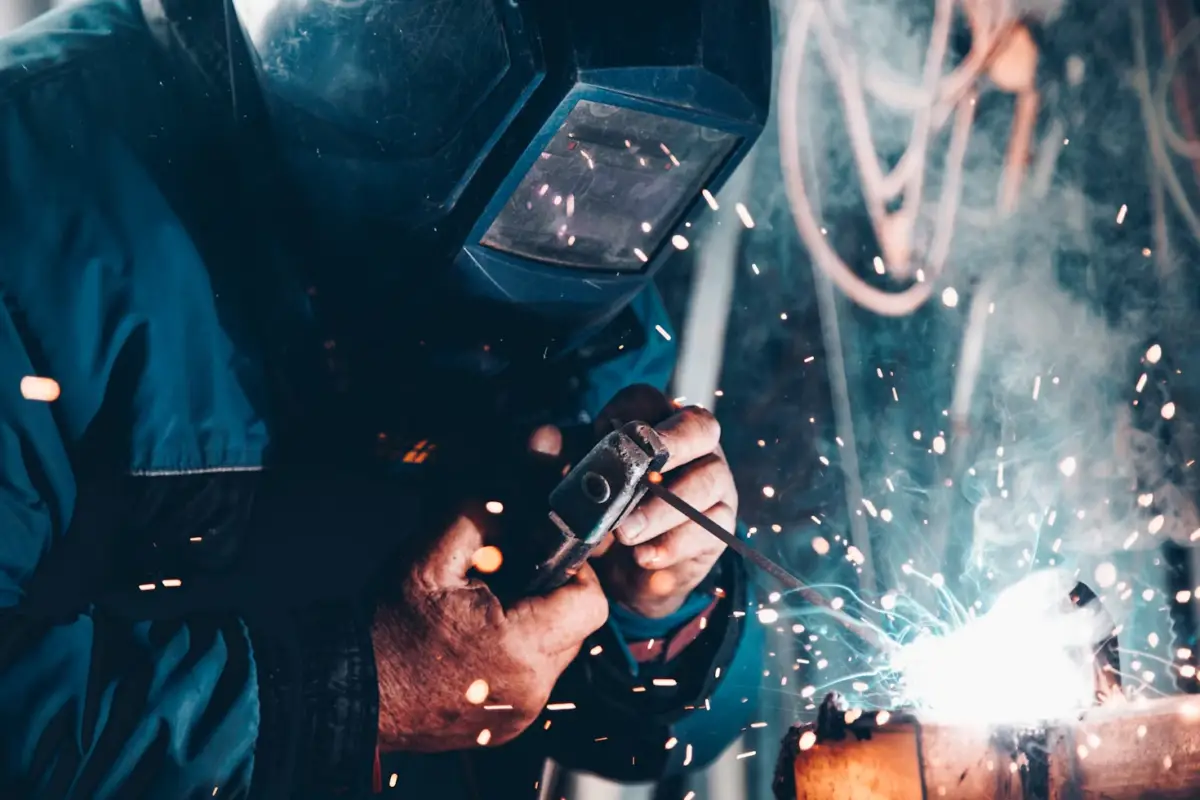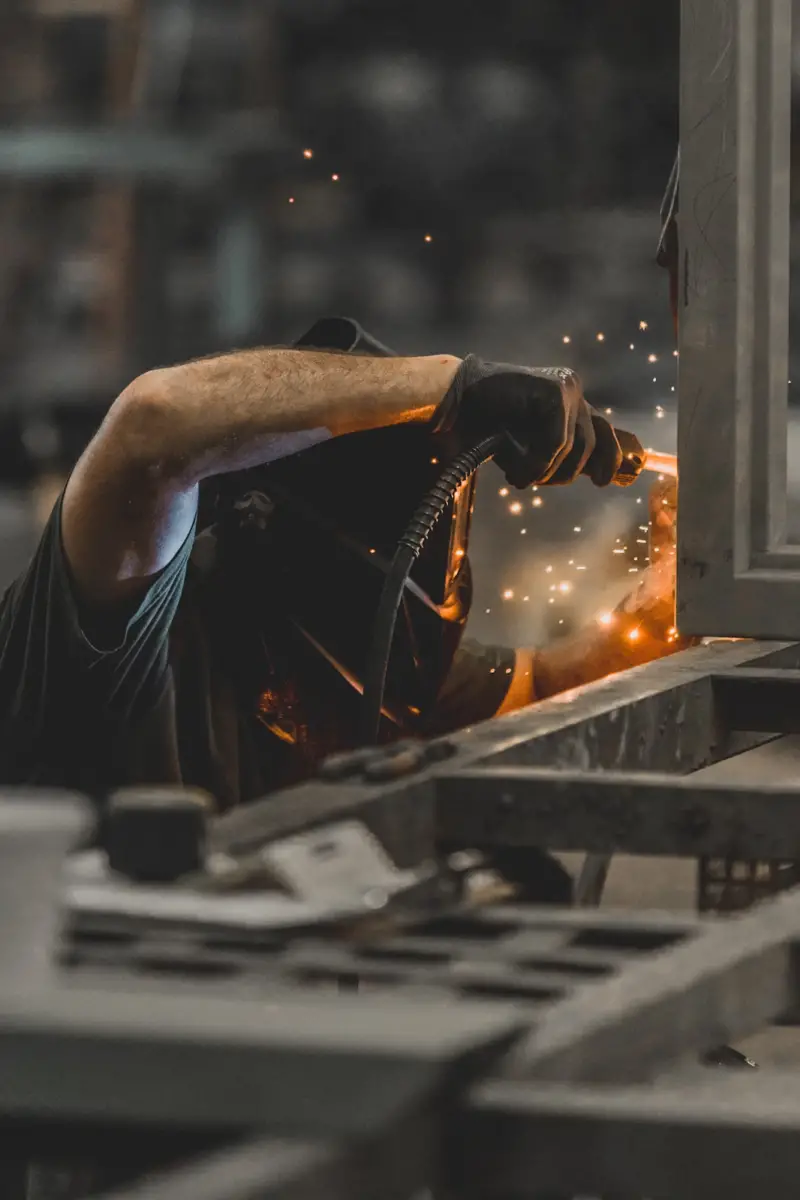Welding is vital in modern manufacturing, forming the foundation for industries that need strong and precise metalwork.
From building skyscrapers to creating complex machine parts, welding turns raw materials into functional products.
Its use spans the automotive, aerospace, construction, and energy sectors, making it crucial to today’s economy.
Businesses can rely on The Edge WA for expert welding services and equipment to meet their manufacturing needs precisely and reliably.
This blog explores how welding boosts efficiency, supports innovation, and continues to shape the future of industrial production.

The Importance of Welding in Manufacturing:
At its core, welding is about joining materials—typically metals or thermoplastics—by heating them to a point where they fuse.
This process ensures strong, permanent connections, vital in manufacturing products that require durability and reliability.
For example, the automotive industry relies on welding to assemble car frames, while the construction industry uses it to fabricate steel beams for buildings.
Without fabrication, many structures and products we depend on daily would not exist.
Enhancing Structural Integrity:
The structural integrity of manufactured goods is ensured in large part by welding. In industries like aerospace and automotive, where safety is paramount, the strength of welded joints can be the difference between success and failure.
Welded components must withstand extreme conditions, including high pressures and temperatures, making the precision and quality of fabrication essential.
Advances in fabrication techniques, such as laser and ultrasonic welding, have further enhanced the ability to create joints with unmatched strength and precision.
Supporting Industrial Automation
The rise of automation in manufacturing has been complemented by innovations in welding technology. Robotic welding systems, for instance, have revolutionized production lines by increasing speed, accuracy, and consistency.
These systems are particularly beneficial in industries requiring high-volume production, such as electronics and appliances. Automated fabrication not only boosts productivity but also reduces the likelihood of errors, ensuring higher-quality outcomes.
Welding and Sustainability
Sustainability has become a major focus in modern manufacturing, and welding contributes significantly to this goal.
By enabling the repair and recycling of metal products, fabrication reduces waste and supports the circular economy.
Additionally, advances in fabrication techniques, such as friction stir welding, are more energy-efficient and environmentally friendly. These sustainable practices align with the growing demand for greener manufacturing processes.
Innovations in Welding Technology
The welding industry has seen remarkable technological advancements over the years.
Methods like laser fabrication, electron beam fabrication, and plasma arc fabrication have expanded the possibilities of what can be achieved.
These techniques allow manufacturers to work with a wider range of materials, including exotic alloys and lightweight metals, which are critical in industries like aerospace and renewable energy.
Such innovations not only improve the quality of the welds but also open up new avenues for design and functionality.
Welding in Emerging Industries
While traditional sectors like construction and automotive continue to rely heavily on fabrication, emerging industries are also benefiting from this technology.
For instance, the renewable energy sector uses welding to assemble wind turbines and solar panels. Similarly, the medical device industry relies on precision fabrication for creating intricate tools and implants.
As these industries grow, so does the demand for skilled welders and advanced fabrication solutions.
The Role of Skilled Welders
Despite the advancements in automation, skilled welders remain indispensable in modern manufacturing.
Their expertise ensures that even the most complex welding tasks are executed with precision.
Skilled welders are particularly crucial in custom fabrication and repair work, where automated systems may lack the flexibility to adapt to unique challenges.
Investing in the training and development of welders is therefore essential for the continued growth of the manufacturing sector.
Welding Safety and Standards
Every industry setting, including welding, places a high premium on safety.
The process involves risks such as exposure to high heat, fumes, and ultraviolet radiation.
Manufacturers must adhere to strict safety protocols and standards to protect workers and ensure high-quality outcomes.
Equipment like welding helmets, gloves, and ventilation systems are critical in maintaining a safe working environment.
Welding and Digital Integration
The integration of digital technologies, such as the Internet of Things (IoT) and artificial intelligence (AI), is transforming fabrication processes.
IoT-enabled welding machines can monitor and adjust parameters in real time, optimizing performance and reducing downtime.
AI-powered systems can analyze fabrication data to predict maintenance needs and improve overall efficiency.
These advancements align with the broader trend of Industry 4.0, where connectivity and automation drive innovation.

Challenges in the Welding Industry
Despite its many advantages, the fabrication industry faces challenges, including a shortage of skilled workers and the need to adopt new technologies.
Manufacturers must address these issues by investing in training programs and staying updated on the latest advancements.
Collaboration between industry leaders, educational institutions, and organizations like The Edge WA can help bridge these gaps and ensure the continued growth of fabrication in manufacturing.
The Future of Welding
The future of fabrication looks promising, with ongoing research and development paving the way for even more efficient and sustainable processes.
Innovations such as additive manufacturing (3D printing with fabrication) are set to revolutionize how products are designed and built.
As technology continues to evolve, fabrication will remain at the forefront of manufacturing, enabling industries to push the boundaries of what’s possible.
Also read: Types of Windows
Conclusion
Welding is an indispensable part of modern manufacturing, contributing to the strength, functionality, and innovation of countless products and structures.
From enhancing structural integrity to supporting sustainability and automation, its role in driving industrial growth cannot be overstated.
With advancements in technology and a focus on sustainability, fabrication will continue to shape the future of manufacturing.
Businesses seeking reliable welding solutions can turn to The Edge WA for expert services and high-quality equipment.
By embracing the power of fabrication, manufacturers can ensure their success in an ever-evolving industry.

Related Posts
Rock Quality Designation(RQD): Building Strong Foundations
Spread Footing
Masonry Cement
Plain Cement Concrete
Concrete Efflorescence
Concrete Pile
Stepped Footing
Fineness Modulus of Coarse Aggregates
Difference between Condo and Apartment